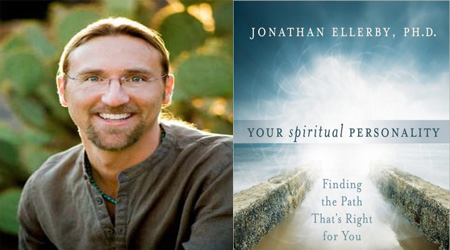 Do you need a belief expert to comment on the recent pew religion in america survey? If so, please consider Dr. Jonathan Ellerby.
Do you need a belief expert to comment on the recent pew religion in america survey? If so, please consider Dr. Jonathan Ellerby.
Dr. Jonathan Ellerby has a doctorate in comparative religion, is the spiritual program director for Canyon Ranch, one of the world’s leading health resorts, and is the author of a new paperback, Return to the Sacred, which helps people to safely and wisely choose their spiritual practices and philosophies in a complex modern world of regional differences and the mixing of faiths. Dr. Ellerby has conducted his own research on a similar topic surveying over 1250 people on the topic of spiritual belief. To learn more or take part in that survey, go to: www.thespiritualitysurvey.com
http://www.jonathanellerby.presskit247.com
Regional differences: “How Religious Is Your State?”
Dr. Ellerby states, “The Pew Religion in America Survey is fascinating but tells us very little about the spirituality of America. The use of religion as the lens for understanding spirituality only highlights a narrow grouping of people that identify strongly with the term ‘religion.’ In my own research of over 1250 people, the vast majority think of themselves as spiritual and not religious, have views of God that are predominantly universal and not faith-based and by a vast majority find their spirituality in the world around them, such as in nature or helping others, more so than in a religious setting. We need to start asking new questions and recognize that religion is too complicated a category to be so exclusively researched. The Pew Religion in America Survey gives evidence to strong regional differences, revealing that local culture and politics are a great force in shaping belief. It also shows how Americans misunderstand ‘faith.’ Regional differences aren’t new, they’re a timeless hallmark of patterns of belief and practice around the world the real question is, ‘What do these differences mean and what do these different groups believe?’ Let’s not assume the least ‘religious states’ are the least spiritual. The opposite could be true.”
Mixing Faiths (featured on USA today cover)
According to Dr. Ellerby, the Pew Religion Study is “important and nothing new and that’s why we need to talk about it openly.”
The Pew Religion in America Survey shows statistics that suggest that about 75% of Americans admit to “blending” religious beliefs and practices and that nearly half of Americans have completely switched religious traditions at least once within their lifetime. The recent study shows other findings that many find surprising and some find concerning.
Dr. Ellerby says, “What surprises me is that anyone is surprised at all. Religious and spiritual beliefs have always been profoundly personal and even in one tradition there will always be great variation even where there is fundamentalism. Moreover, we must remember that no religion grew out of a vacuum and that at some level every religious tradition bares the mark of its original region, time period and cultural neighbors. Christianity, as an example, looks different in Mexico in contrast to Poland compared to Russia. Islam, Judaism, Hinduism all the worlds major traditions have been influenced by other religions even in their most sacred traditions and rites. The important question today is whether there can be harm in mixing beliefs and practices and if it’s natural, how can it be done in a way that is safe, meaningful and useful. I highlight a few key issues for people to be aware of when exploring new spiritual choices here:
1. Context: First, be sure to honor the context you come from. Look to your faith of origin a little further before you throw it away entirely. If it no longer serves you, then move on compassionately and seek guidance as to what next step will best suit your spiritual personality and life context.
2. Respect: Make sure you take the time to learn about and respect the new tradition or practice you are exploring, before you make claims or commitments. Go slowly, do your homework.
3. Effect: Once you have embraced a new tradition or practice, make sure you consult trusted guides and programs to help you embrace your change — you want be sure you understand what you are doing and that you are doing it right.

